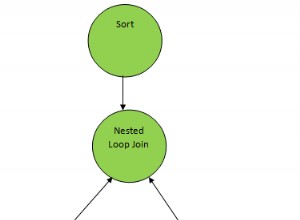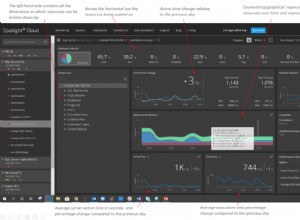Można to osiągnąć za pomocą podziału relacyjnego :
select r.order_id from (
select
dividend.*
from your_table_or_query as dividend -- assumes no duplicates in `dividend`; use `distinct` if there are any
inner join divisor
on dividend.value = divisor.value
) as r
group by r.order_id
having count(*) = (select count(*) from divisor);
wynik:
+----------+
| order_id |
+----------+
| 1236 |
| 1239 |
+----------+
2 rows in set (0.00 sec)
gdzie Twoje zapytanie to your_table_or_query i
select 260 as value from dual union select 264 as value from dual
to divisor .
Spowoduje to zwrócenie identyfikatorów zamówień 1236 i 1239; mogą być wtedy join ed do oryginalnego zapytania, aby uzyskać wszystkie wiersze z tymi identyfikatorami zamówień, jeśli tego chcesz.
Pełne zapytanie wraz z instrukcjami insert:
create table divisor (value int);
insert into divisor values (260), (264);
create table your_table_or_query (value int, order_id int);
insert into your_table_or_query values (260, 1234), (260, 1235), (260, 1236), (264, 1236), (260, 1237), (260, 1238), (260, 1239), (264, 1239), (264, 1240), (260, 1241);
select y.* from (
select r.order_id from (
select
dividend.*
from your_table_or_query as dividend
inner join divisor
on dividend.value = divisor.value
) as r
group by r.order_id
having count(*) = (select count(*) from divisor)
) as quotient
inner join your_table_or_query y
on quotient.order_id = y.order_id;
Wynik:
+-------+----------+
| value | order_id |
+-------+----------+
| 260 | 1236 |
| 264 | 1236 |
| 260 | 1239 |
| 264 | 1239 |
+-------+----------+
4 rows in set (0.00 sec)




